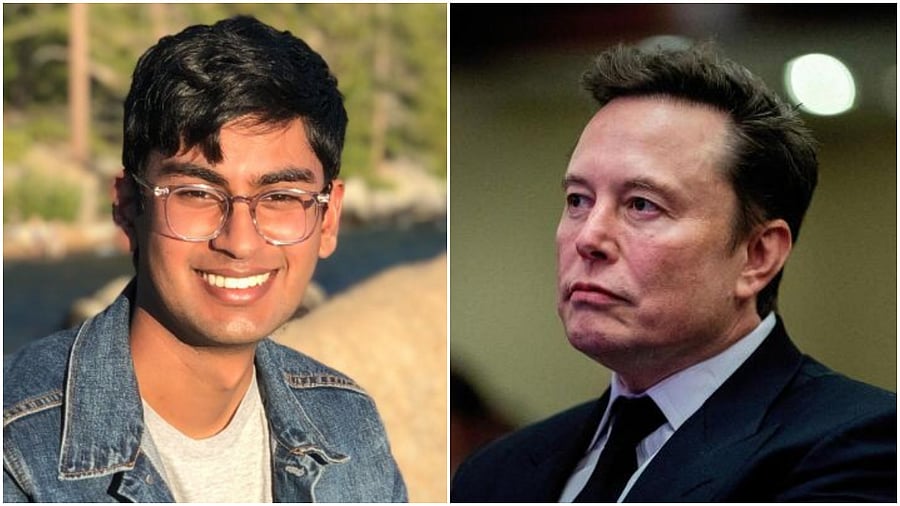
Deceased OpenAI whistleblower Suchir Balaji (Left); Elon Musk (Right).
Credit: X/@suchirbalaji and Reuters Photo
The controversy surrounding the death of former OpenAI employee and whistleblower Suchir Balaji has taken a new turn with his mother crying foul play and demanding an FBI investigation into the matter on Sunday.
Balaji's mother Poornima Ramarao alleged that his son's death was a "cold blooded murder", which was "declared by the authorities as suicide''.
In a post on social media platform X tagging Elon Musk and Vivek Ramaswamy - who are set to be part of US president-elect Donald Trump's administration, Ramarao wrote, "We hired private investigator and did second autopsy to throw light on cause of death. Private autopsy doesn’t confirm cause of death stated by police."
"Suchir’s apartment was ransacked, sign of struggle in the bathroom and looks like some one hit him in bathroom based on blood spots. It’s a cold blooded murder declared by authorities as suicide. Lobbying in SF city doesn’t stop us from getting justices. We demand FBI investigation," she added.
Ramarao's post got the attention of Musk, who responded to her claims on X with a post of his own. "This doesn’t seem like a suicide," he wrote.
Notably, Musk has a strained relationship with current OpenAI CEO Sam Altman. Musk was one of the founding members of OpenAI - however, he quit the company following rift in 2018.
Twenty-six-year-old Suchir Balaji was found dead at his San Francisco apartment on November 26 this year, with authorities confirming that he died by suicide.
Balaji was known for whistleblowing the artificial intelligence company which is facing a swell of lawsuits over its business model. He publicly raised questions about the fairness of OpenAI's training methods for generative AI.
In a post dated October 2024 on his website, Balaji wrote, "While generative models rarely produce outputs that are substantially similar to any of their training inputs, the process of training a generative model involves making copies of copyrighted data. If these copies are unauthorized, this could potentially be considered copyright infringement, depending on whether or not the specific use of the model qualifies as 'fair use'."
(With PTI inputs)
